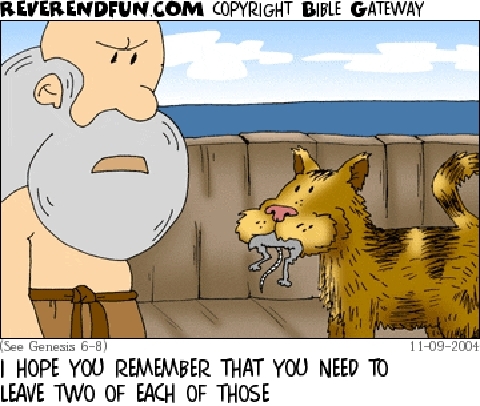Hello everyone,
Welcome to the latest issue of our church newsletter. Hope that you are all continuing to keep well and stay safe. This newsletter is one of our ways of trying to maintain contact and a sense of community during this time when we cannot meet together as a church family. You can find previous issues of the newsletter here. We would love to hear from you and are looking for uplifting and encouraging content to share in future issues of this newsletter. If you have any ideas or content that we can share, please do email them to Louise (publicity@christchurchuxbridge.org.uk)
We start with our opening prayer:
Loving and gracious God, we rejoice to know your presence with us at all times and in all places;
When we feel needy, you hear us and answer us.
When we feel threatened, you hear us and answer us.
When we cry out to you, you hear us and answer us.
Loving and gracious God, you are good, abounding in steadfast love to all who call on you;
When we have gone astray, you love us and forgive us.
When we have messed up, you love us and forgive us.
When we have followed our own desires, you love us and forgive us.
Loving and gracious God, your love for us knows no bounds, for you even came amongst us in Jesus to share our life;
We turn our hearts and minds to worship you, receive our love.
We sense your transforming power at work in our lives, receive our love.
We long to be filled with your Spirit and become more like you, receive our love.
Loving and gracious God, we worship you today. Amen
(Taken from the Vine at Home)
Update on church opening
You may have heard that the government has given the go-ahead for churches to open early in July.
We need to work under guidance from government, denominations and insurers. The health and safety of our staff and users of the building is paramount.
Various activities are taking place to prepare for the future.
Our first priority is to open for Sunday services with other uses of the building following gradually.
How we deal with social distancing and maybe ’no singing’ are among the challenges we face.
We will open when it is safe to do so. Meanwhile Sunday services will continue to be streamed.
Brian Moere
Reflection from last week’s service
So Sarah laughed to herself, saying, ‘After I have grown old, and my husband is old, shall I have pleasure?’ The LORD said to Abraham, ‘Why did Sarah laugh and say, “Shall I indeed bear a child now that I am old?” Is anything too wonderful for the LORD?’ (Genesis 18: 12–14)
Let’s face it: this text is a non-starter. Wouldn’t it be better to practise laughter than preach a sermon about it? After all, religion is no laughing matter. Unless, that is, we happen to like watching the gogglebox as Phoebe Waller-Bridge in the role of Fleabag pursues her ‘hot priest’, or Tom Hollander plays the hapless Revd Adam Smallbone in Rev. But the Bible is not a humour-free zone. Our Old Testament reading today is by way of explaining the origin of the name Isaac, which means ‘he laughs’. Paul writes about the ‘foolishness’ of the Gospel (1 Corinthians 1: 20–31). Jesus told a very good joke about a rich man, a camel and the eye of a needle (Matthew 19: 24) — which with constant repetition we have transformed into a solemn and weighty pronouncement.
But laughter and religion? Well, there are different kinds of laughter. There is joyful, comfortable, playful and contented laughter, and there is mocking, malicious, desperate and cynical laughter. There is laughter for sheer pleasure in life, and laughter from sheer bitterness in disappointments. There is affirmative, enthusiastic laughter, and there is arrogant laughter which aims to ridicule. There is proud laughter and infectious laughter, sick laughter and healing laughter.
Laughter knows no limits, no taboo, no respect; and there is as much laughter at the loftiest things in life as at the lowliest, as much laughter at the holiest as at the most trivial. Laughter embraces the whole spectrum of life and morality: from goodness to meanness, from humanity to barbarism. Doctors would tell us that laughter is therapeutic: it releases chemicals called endorphins in our brains and helps to lift our mood and sense of well-being. Laughter is part of life and a positive part of life.
But not in Church. Historically, the Church has not been good at laughter. Religion, the Church has said, is no laughing matter. Religion is serious. So serious that it has sought to coerce people into taking it very seriously indeed. The more the Church has sought to coerce people into taking religion seriously, the more it has provoked the opposite reaction: there are more jokes about popes, bishops, vicars and ministers than you can shake a stick at.
It is easy to mock the institution; it is easy to mock an image of God who is a stern, humourless taskmaster created in the image of stern, humourless taskmasters and taskmistresses. It is far harder to affirm a God who, according to the basic message of Scripture, is not a cynical manipulator, but a God of joy, joy in human beings and joy in creation. So we have to continue to trust that this God — despite all that we human beings do to his creation — does not burst into inscrutable laughter at our follies and failings, but is the one of whom Scripture says that he laughs with the doubters and the desperate like Abraham and Sarah, and takes more delight in the conversion of one sinner than in ninety-nine righteous people who believe that they do not need to repent.
Let’s return to our Old Testament text for a moment. Because it has some striking things to say to us. The text tells us that God appears to Abraham, who is almost one hundred years old, in a grove of terebinths or oak trees, in the guise of three men. Abraham learns that his wife, who has similarly grown very old and remained childless, will bring a son into the world within a year. Sarah overhears this conversation and reacts as we might expect: she laughs in disbelief. Sarah hears a promise for the future, compares it with her reality and notes the discrepancy between the two, which is so great as to be ludicrous. The probability of a promised possibility is so small that it makes her laugh. The reason for her laughter is the experience of the contrast between reality and possibility. She laughs not out of perplexity or despair, but out of doubt. She mistrusts promises for the future which seem unreal and she refuses forecasts of happiness which seem impossible.
But it is not only Sarah who laughs. So does Abraham. In Genesis 17, God had announced to Abraham what would in future be the foundation of a quite new relationship between God and humankind — an everlasting covenant — concluded between himself and Abraham’s descendants. Except that at this point Abraham doesn’t have any descendants. And what does Abraham do when he hears that at the age of a hundred he will still be capable of fathering a child, and at the age of 90 Sarah will still be capable of bearing it? He falls down on his face and laughs. Abraham prostrates himself in worship before God, but he is laughing as he does so. It is one of the most extraordinary images in the whole of Scripture — profound faith alongside laughing doubt.
The world tells us that secularism has won — at least in the West. The world tells us that the institutional Church is in terminal decline. The world tells us that the global free market is triumphant and carries all before it; there is no alternative. (Politically, there has been a reaction against globalization over the last ten years or so, and with it the rise of nationalism and populism.) The good news that comes out of Scripture — the good news that is the record of people’s experience — tells us that God is very much alive. True, the Church is going through a period of profound change in the postmodern world, and how it responds to the coronavirus pandemic will sharpened that further; but there are creative possibilities for the renewal of its life and mission if only we are prepared to grasp them. As God’s people, we have an alternative, prophetic message about peace, justice and human dignity with which to challenge the status quo. The God of experience, Scripture and history opens up to us these and many other possibilities beyond all human expectation:
I am about to do a new thing; now it springs forth, do you not perceive it? (Isaiah 43: 19)
And deep, deep inside us lies faith in that kind of God. As it struggles for expression, it sometimes comes out as a disbelieving laugh. When it does, remember what happened to Sarah. In a stinging rebuke, the visitor said to her:
Is anything too wonderful for the LORD? (Genesis 18: 14)
The Hebrew word there for ‘wonderful’ is pela. Pela means something that is simply too hard, too wondrous, too impossible. The way in which Abraham and Sarah receive the promise of an extraordinary future is through a pela’. What the text says to them, it says to us. Who are we to think that the future is in our hands? That human freedom and human possibility are what we create unaided? An everlasting covenant of love and grace and mercy is a pela. An exodus from slavery in Egypt is a pela. A return from exile in Babylon is a pela. The entire prophetic tradition in the Old Testament is a pela.
Then we come to New Testament times. The birth of Jesus, the Word made flesh, is a pela’. Luke in his Gospel keeps reminding us that this event is a time of joy. And what about the text of Jesus’ first sermon in the synagogue in his home town of Nazareth?
‘The spirit of the Lord is upon me, because he has anointed me to bring good news to the poor. He has sent me to proclaim release to the captives and recovery of sight to the blind, to let the oppressed go free, to proclaim the year of the Lord’s favour.’ (Luke 4: 18–19)
Impossible! impossible! we say. But that manifesto is what Jesus embodied in his life and ministry. He himself in person was God’s impossible concern — especially for people at the margins of life — where his contemporaries could least accept this. That’s our calling, too. Pela.
Then there is the pela of the cross and resurrection. The Son of God on the cross — what mockery! The resurrection of Jesus from death — come off it! Pela. The power of death is the strongest and bitterest on earth; and the joy of Easter never denies that. It is joy with a garland of mourning. But it is here that we open ourselves up to the impossible, relentless, surging power of God: the experience that the crucified Jesus was not held by death, but lives through God’s action and remains alive in the Spirit. And as Paul reminds us in our Epistle reading from Romans:
God’s love has been poured into our hearts through the Holy Spirit that has been given to us. (Romans 5: 5)
So there is laughter for Christians: it is laughter in the teeth of experience, which constantly reminds us that the world’s sufferings do not have the last word. Then there is the laughter of God — the laughter of boundless goodness and joy in his creation and his creatures — the laughter that reassures us that all things are possible for God, for us and our world. Pela. Amen.
John Swarbrick
Our readings for this week:
Romans 6:1b-11 (NIV)
Shall we go on sinning so that grace may increase? 2 By no means! We are those who have died to sin; how can we live in it any longer? 3 Or don’t you know that all of us who were baptized into Christ Jesus were baptized into his death? 4 We were therefore buried with him through baptism into death in order that, just as Christ was raised from the dead through the glory of the Father, we too may live a new life.
5 For if we have been united with him in a death like his, we will certainly also be united with him in a resurrection like his. 6 For we know that our old self was crucified with him so that the body ruled by sin might be done away with,[a] that we should no longer be slaves to sin— 7 because anyone who has died has been set free from sin.
8 Now if we died with Christ, we believe that we will also live with him. 9 For we know that since Christ was raised from the dead, he cannot die again; death no longer has mastery over him. 10 The death he died, he died to sin once for all; but the life he lives, he lives to God.
11 In the same way, count yourselves dead to sin but alive to God in Christ Jesus.
Further readings from the lectionary this week are as follows:
- Genesis 21:8-21
- Psalm 86: 1-10, 16-17
- Matthew 10: 24-39
Coffee morning
Our next virtual coffee morning will be held on Saturday 27 June via Zoom. If you would like to join in, please contact Louise (publicity@christchurchuxbridge.org.uk) for details.
Our worship
We are now live-streaming services via Facebook each Sunday at 11am. You can find our services here. You do not have to be a Facebook user to watch this – our services are publicly viewable.
We will be meeting via Zoom immediately after the service for a virtual ‘coffee and chat’. The link for this will be sent in the comments during the service.
We are also holding weekly prayer meetings via Zoom on Wednesdays at 7pm. If you would like to join us for this or have any prayer requests that you would like us to include, please contact the Church Office.
Links for worship material from the URC and Methodist Church and youth devotional material from #BBatHome are available on the Worship page on the church website.
(Copyright Gospel Communications International, Inc – www.reverendfun.com)
Children’s Corner
Taken from this week’s Roots activity sheet
© ROOTS for Churches Ltd (www.rootsontheweb.com) 2002-2020.
Reproduced with permission.
Praying for other churches
This week we hold the following churches in our prayers:
- Christ Church – we pray for our church family, those who would normally meet in our buildings and our community.
Closing prayer
The Lord bless you and keep you;
the Lord make his face to shine on you
and be gracious to you;
the Lord look on you with kindness
and give you peace. Amen.






